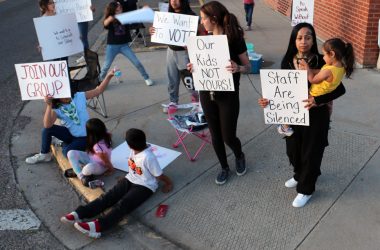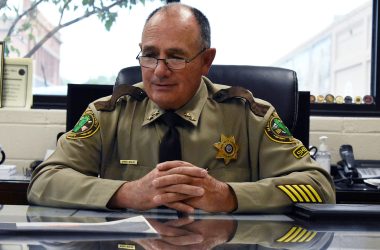By Lee H. Hamilton
For the Enterprise
Barring a surprise at the Republican National Convention in Cleveland later this month, the race for the presidency is set. So this seems a good time to step back and consider just what it is that Hillary Clinton and Donald Trump are fighting about.
I don’t mean where they stand on the issues, or whose vision is more compelling. I mean the office itself. The modern presidency is unique — and pretty far removed from what our Founders envisioned. It’s worth understanding what’s at stake as you watch these two people campaign for it.
As Americans we have an odd attitude toward the presidency. On the one hand, we’re leery of executive power, and often of the government the President symbolizes. Yet we’re also fascinated by the person who holds the office. When I was in Congress, if I had contact with the President, swarms of reporters would want to know every word he’d said. And people back home had an insatiable curiosity — about the President, his family, what they wore, where they traveled, how they treated people. Americans invest a lot of energy and attention in the President, whether they like or abhor him.
And it’s not just Americans. The President is not just the central player in our own government, but also in world affairs. Anywhere you travel, you’ll find people who are curious about the most visible American on the planet.
All of this is with good reason. Presidents control the political agenda in this country. They formulate the budget, set defense and foreign policy, develop the initiatives that drive domestic affairs, and create the contours of public debate. Congress, by contrast, reacts. In recent decades, it’s been rare to find Congress seizing the initiative on much of anything. So the President stands at the center of the government, not just in moments of crisis — when you’d expect it to be the case — but when it comes to the everyday running of the country. Presidents have been opportunistic about this, doing what they must to succeed in the system they’ve been given. If they’ve been unable to get congressional approval, they’ve tried to work around it with executive orders; Democrat or Republican, they’ve worked hard to expand their power.
The job has always carried with it great responsibility, but the weight of the modern presidency is overwhelming. There is no job training for the position, and no President emerges unscathed from the office. Harry Truman’s comment about where the buck stops was absolutely correct. In a representative democracy, the ultimate power may lie with the voters, but every tough problem this nation faces percolates up to the President; if it were easily solvable, someone else would have taken care of it. I’ve found almost all the presidents I’ve met to be serious, intelligent, anxious to do the right thing, likeable — and always over-burdened.
The story used to be told about Franklin Roosevelt that when he gave a fireside chat, you could walk down a street and never miss a word, because every house would have the radio on. The presidency today is less of a bully pulpit, yet in policy, the President’s remains the strongest single voice in this country and the world.
Which is worth pondering. No President ever lives up to the expectations people have for him — presidents make mistakes both large and small, and their power is not limitless. But the balance of it in this country is unquestionably tilted in the direction of the White House, and that is not going to change.
So the question about the presidency that concerns me is how to hold the President accountable. He or she needs to be scrutinized, challenged, and held answerable to Congress and the public for his or her policies. There are today only rare opportunities for the vigorous give and take and close examination of a President that our system once provided. But how long can that continue before we cease to be a true representative democracy?
Lee Hamilton is a senior advisor for the Indiana University Center on representative government; a Distinguished Scholar, IU School of Global and International Studies; and a Professor of Practice, IU School of Public and Environmental Affairs. He was a member of the U.S. House of Representatives for 34 years.



